My Background
While obtaining my training in graduate school, I had the opportunity to work with many individuals who sought therapy for various reasons. I discovered many of those I worked with had experienced some underlying trauma that had not been resolved that was in some way informing their current distress and often, contributing to their relational problems. I developed a passion for helping people identify the “roots” of their difficulties, pain and distress, and join them on their journey to healing and resolving these issues. Aside from my private practice, I currently work as the in-house therapist for Redemption Ridge’s residential program for young women who have experienced complex trauma.
My Approach & What to expect
My approach to therapy is person-centered and directed with a focus on attachment and psychodynamic theories. Most clients find my manner gentle, yet direct. I strive to create and maintain a safe therapeutic environment which facilitates the building of our relationship and allows for healing to take place.
If we decide we'd like to work together, I will ask you to complete a general intake form which will provide you the opportunity to share information about your history and reasons for seeking therapy. The goal of our first appointment is to obtain a comprehensive history of the presenting difficulties and identify goals so that I may recommend a treatment plan.
Assuming we are a good fit, we will then schedule our next appointment. If you determine I am not the therapist for you, I will provide you with appropriate referrals.
Fees & Availability
I offer appointments on Monday through Thursday based on availability. A limited number of evening appointments may be available. While I do not accept private insurance, I do see clients covered by the Oregon Health Plan (OHP) as well as private-paying clients at an hourly rate. Sometimes, sliding scale slots are available, though these are limited and offered based on availability.
“Being able to feel safe with other people is probably the single most important aspect of mental health; safe connections are fundamental to meaningful and satisfying lives.”


